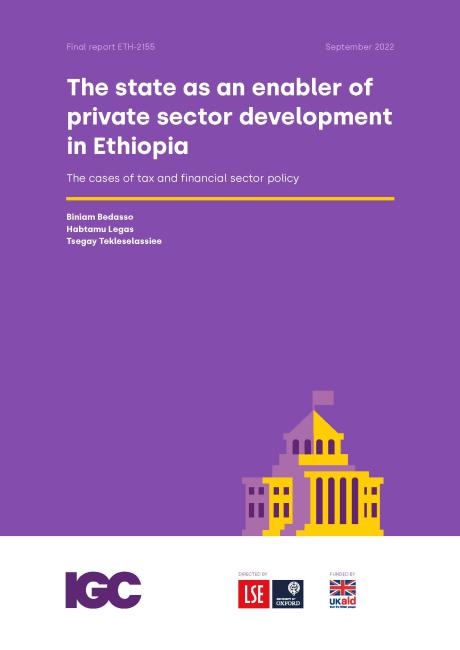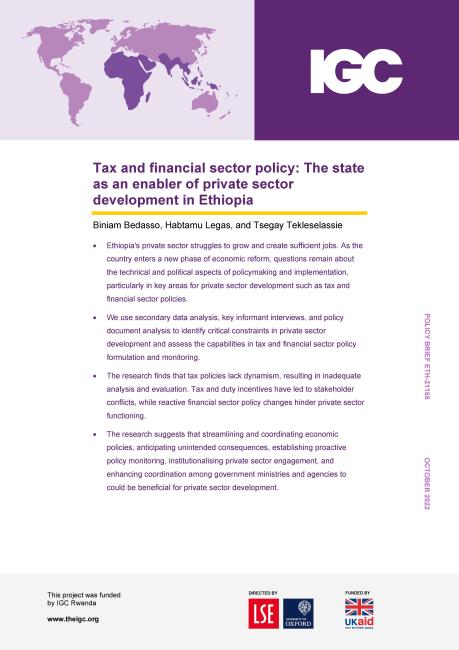Enhancing Ethiopian bureaucratic capacity for policymaking and implementation
This project explores ways to strengthen the Ethiopian civil service's capacity in tax policy and financial regulation.
This project aims to identify actionable policy measures to enhance the capacity of the Ethiopian civil service in policy development and implementation, particularly in the areas of tax policy and financial regulation, essential for supporting the private sector. The study aims to address pressing questions in the context of the nation's economic reform:
- What factors influence policy coherence in economic domains like taxation and financial regulation during the post-2015 period, covering GTP2 and the early years of the homegrown economic reform programme?
- Who are the major actors involved in shaping economic policies crucial for private sector growth, and how do they function within policy networks?
- How does the policymaking process incorporate feedback and learning?
The study will assess policy coherence by analysing the alignment of tax and financial sector policies with national development plans. It will explore the factors affecting policy coherence during design and implementation stages through process tracing. Social network analysis and Political Economy Analysis will be used to map the policy networks and understand the roles of various stakeholders. Additionally, the research will shed light on practices for monitoring, evaluation, and learning in these policy areas.





